President of Palau Surangel Whipps, Jr., and his delegation, visited the Daniel K. Inouye Asia-Pacific Center for Security Studies to discuss policies and issues pertaining to the Indo-Pacific region, Aug. 2, 2021. Pictured from (L-R) Ms. Lauren Henry, senior legal counsel for the office of the president; Ms. Landisang Kotaro Chief of Staff; Mr. Kerai Mariur, former Palau vice president; Mr. Henry Rector, DKI APCSS senior diplomatic advisor; Pres. Whipps; DKI APCSS Director Pete Gumataotao; Mr. Mengkur Rechelulk, House of Delegates; and Ms. Jennifer Anson, National Security Coordinator.
For the second time in as many weeks, the Daniel K. Inouye Asia-Pacific Center for Security Studies (DKI APCSS) hosted the president of an Indo-Pacific island nation. President of Palau Surangel Whipps, Jr., visited the Center Aug. 2 to discuss challenges faced by Palau, and how DKI APCSS may tune efforts to help resolve those challenges. Just a few short weeks ago on July 19, the Center also hosted President David W. Panuelo of the Federated States of Micronesia, for similar discussions.
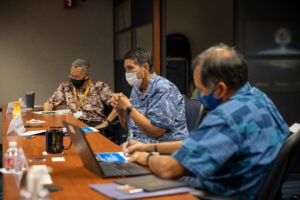
President of Palau Surangel Whipps, Jr., discusses ways to work with the DKI APCSS in the future. Pictured from (L-R) DKI APCSS Deputy Director James Hirai, Pres. Whipps and Director Pete Gumataotao.
This in-person visit was a follow-up to a virtual visit the Center conducted June 21 with Pres. Whipps.
Members of Pres. Whipps team included the Hon. Kerai Mariur, Senate Vice President; the Hon. Mengkur W. Rechelulk, House of Delegates; Ms. Landisang L. Kotaro, Chief of Staff; Ms. Jennifer L. Anson, National Security Coordinator, and Ms. Lauren Henry, Senior Legal Counsel.
The DKI APCSS team consisted of DKI APCSS Director Pete Gumataotao, Deputy Director Jim Hirai, Dean of College Carleton Cramer, Dr. Lori Forman, Senior Diplomatic Fellow Henry Rector and Dr. Al Oehlers.
The roundtable discussion with the Palau and DKI APCSS teams began in the Center’s college conference room, where Pres. Whipps emphasized the effects the COVID-19 pandemic had on his island country, but was also hopeful of recovery.
“This pandemic has pushed Palau to a new level of economic security threat,” he suggested. “The pandemic has been devastating to our economy. However, I think we can say that we’re going to see it through. We’re grateful for the partnership (with the United States and DKI APCSS).”
Other than economic vulnerability being the most urgent concern for Palau, sustainable management of large-area marine sanctuaries, sustainable blue economy development, and challenges associated with climate change, were among other topics of discussion. Because of climate change, Palau has now become susceptible to typhoons and in recent years, has been affected by three typhoons. External assistance and partnership is needed for climate change mitigation and adaptation.
Though the COVID-19 pandemic has severely hampered tourism and the economy, President Whipps indicated that over 75% of the population of Palau has been vaccinated against COVID-19, and by the end of August they will be at 80%. The majority of the unvaccinated are children under the age of 12.
Also, grey zone pressure persists through a myriad of aggressive political and diplomatic approaches, including bogus foreign investment opportunities.
Pres. Whipps said Palau is reaching towards a broader, longer-term national vision of security, encompassing economic, energy, resilience, and sustainability goals, within a rules-based democratic framework consistent with FOIP.
According to Dr. Al Oehlers, these aspirations are likely shared across the wider Micronesian region . In a practical sense, establishing some common baselines across Micronesia relating to sustainability goals, e.g. relating to fishing, can be a helpful progression in that discussion, including topics such as marine pollution, and in concert with partners such as the Parties to the Nauru Agreement (PNA).
The hour-long meeting concluded with each team expressing their gratitude for the discussion and a commitment to an enduring partnership geared toward solving the complex issues of the region.
“Thank you for the opportunity to share and we definitely value your insights in helping us develop a strategy, that hopefully helps Palau and the region, and maintains that ultimate goal of having freedom and democracy, and a free and open Indo-Pacific,” Pres. Whipps concluded.


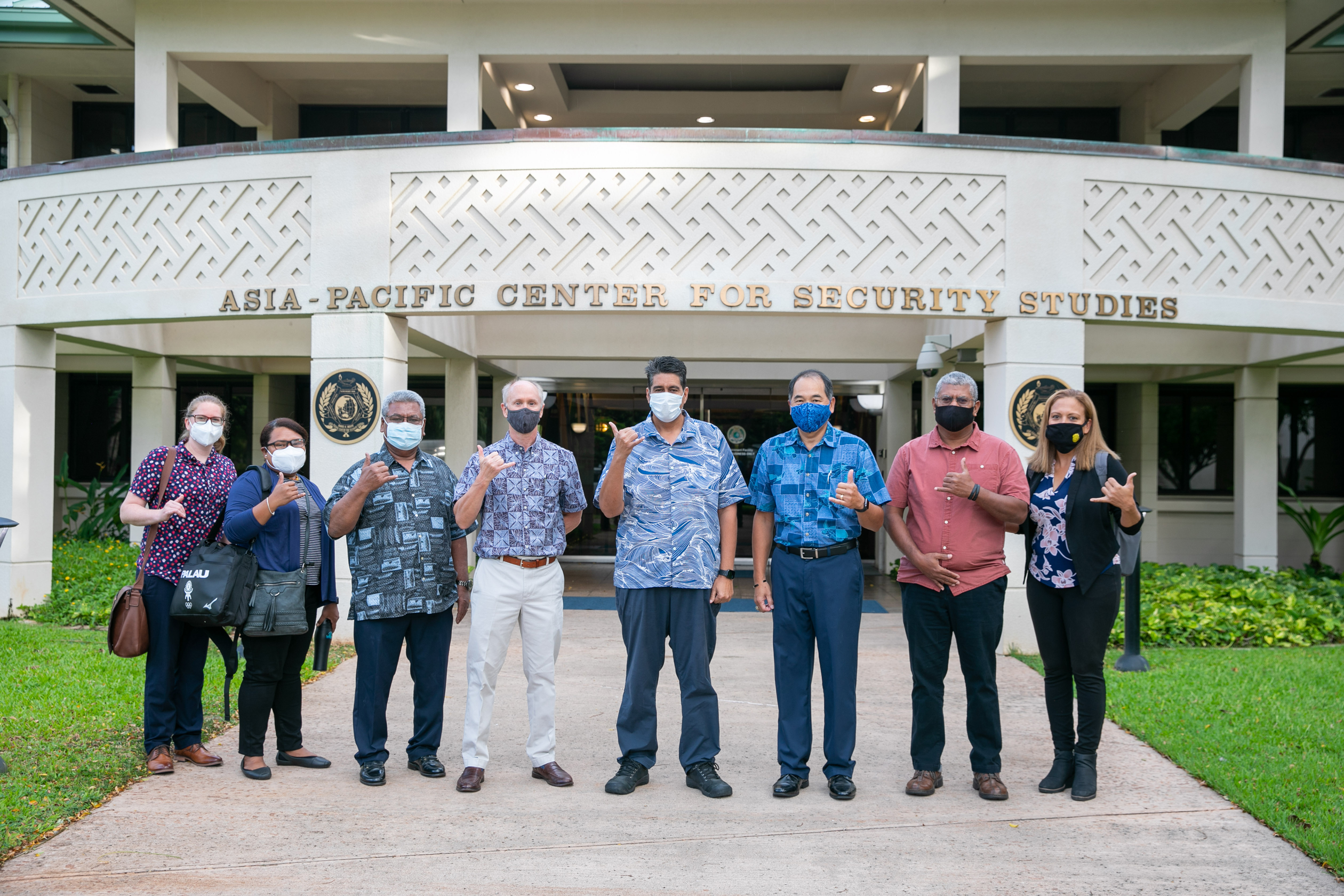
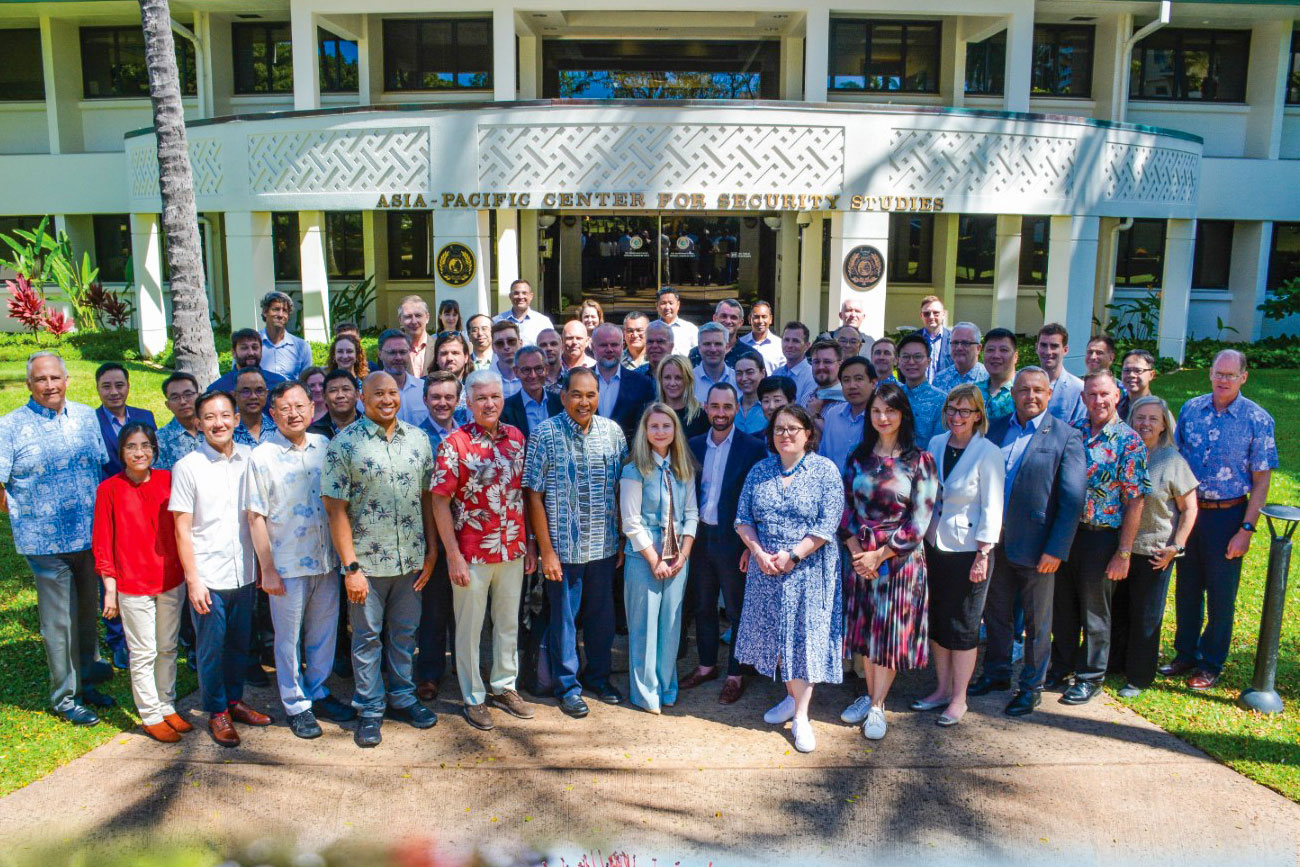
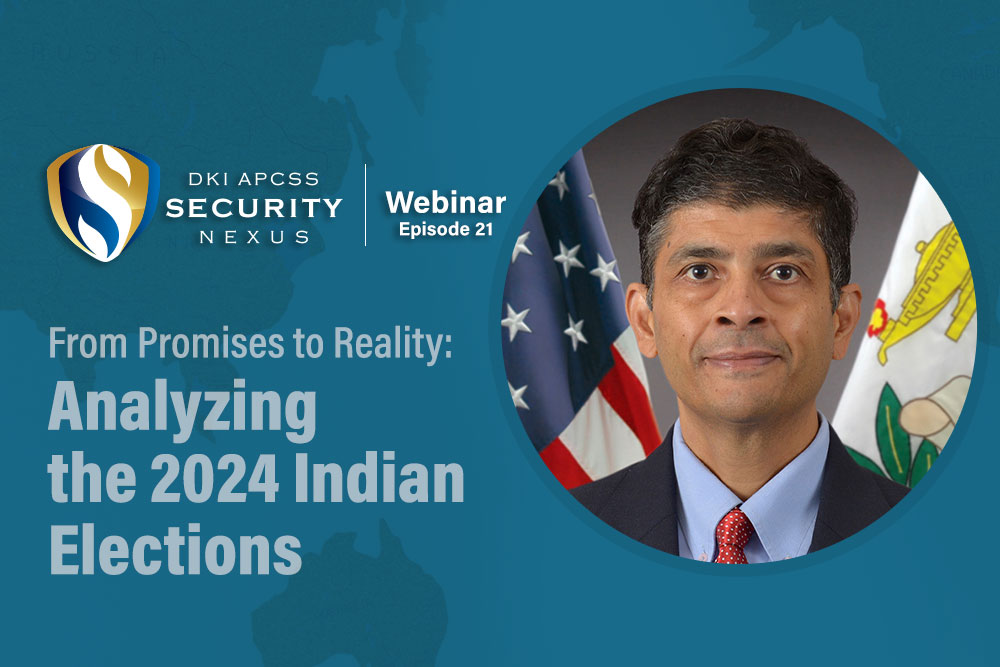
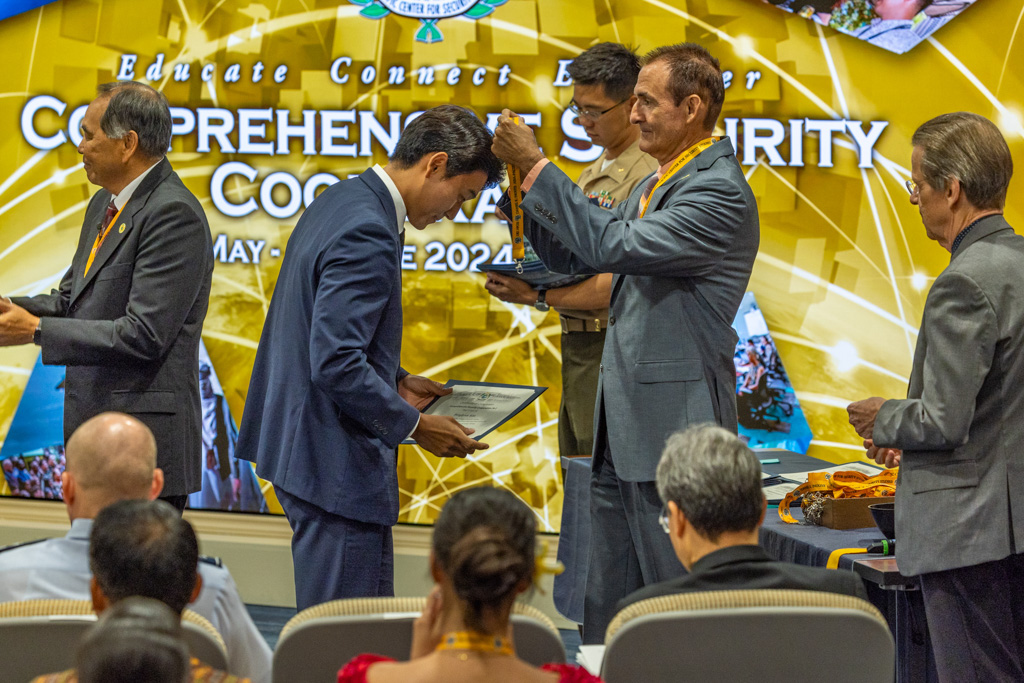




Leave A Comment